Union of the Comoros – The Perfume Islands – Part 3: A look back
As I disembarked from my flight at Prince Said Ibrahim International Airport, an almost empty terminal greeted me. The immigration was just two officers and the all the passengers were from the flight I just came in. There was a very calm ambience I haven’t seen in airports elsewhere.
I hit my first challenge the moment I faced the immigration officer though. While I was entitled to visa on arrival, I could not answer any of the questions the officer asked because they were in French! While I knew that Comoros predominantly speaks French as a foreign language and that locals speak almost no English, I hoped the immigration officials will speak some English. In my panic, I forgot that I had my translator app on the phone as well.
Thankfully the immigration officials were the most hospitable I’ve met. Not only the particular officer went on to find someone who could speak English and translate, they were concerned whether I could make it to my hotel alone and decided to escort me all the way. I would’ve been completely shocked and may be even felt apprehensive if not for having read of this before: http://myafricansojourn.blogspot.com/2010/09/volcano-of-mt-karthala.html. Hospitality of the Comorians wasn’t limited to the immigration officials. The staff of the hotel that I stayed in tried their best to make sure this non-French speaking foreigner enjoyed the time as best as possible.
As we took the taxi from the airport to the hotel which was very close to the city center, the one thing I could observe was a different sense poverty. This is not poverty in the sense of what you see in India and some parts of Africa as absolute poverty where houses are just makeshift huts. On the contrary, the all the houses I saw in that trip were built with cement and properly roofed, but none of them were complete or in a good shape. Some of the houses did not have the last steps of masonry done, so you could see the bricks and cement still. The fully built ones haven’t been painted in years and you could see the cracks and discoloured paint. Here were the people who knew what proper living was like, but were unable to afford it. What is even more interesting is that quite a lot of the houses having satellite entertainment. As my guide explained to me, a Comorian population equivalent to about 1/3rd of that present in Comoros, live in France. The money they send back, seems to be fuelling these luxuries which I think are better spent on other aspects.
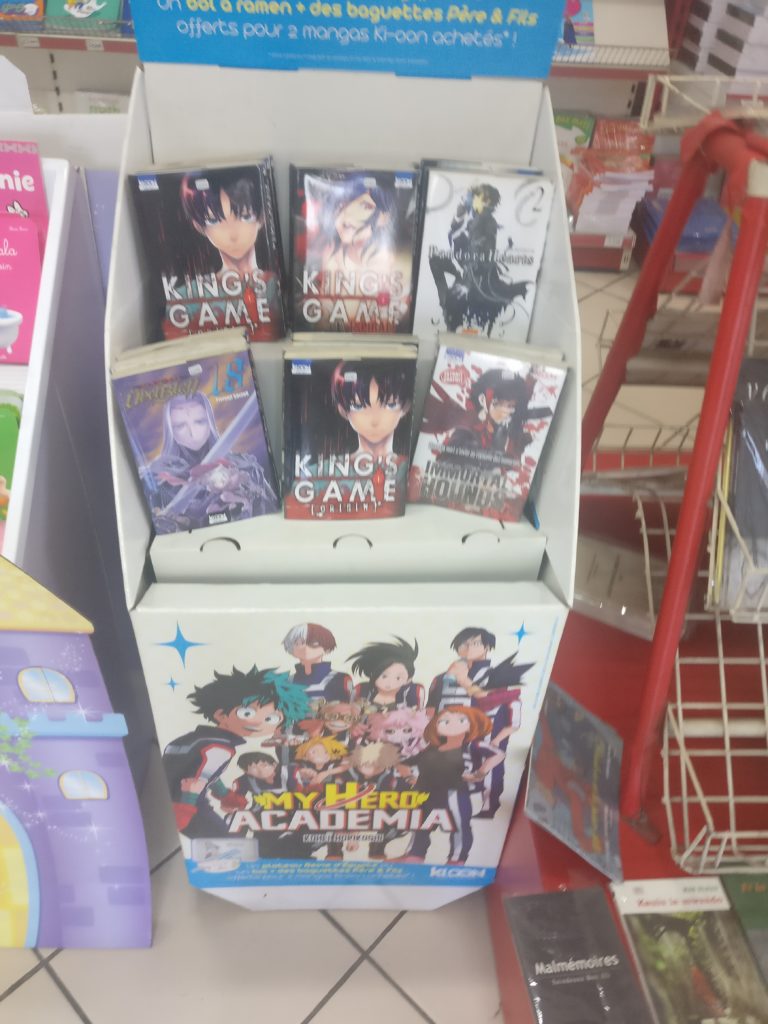
Mysteries of Comoros. I didn’t expect to find these in a grocery shop over there. 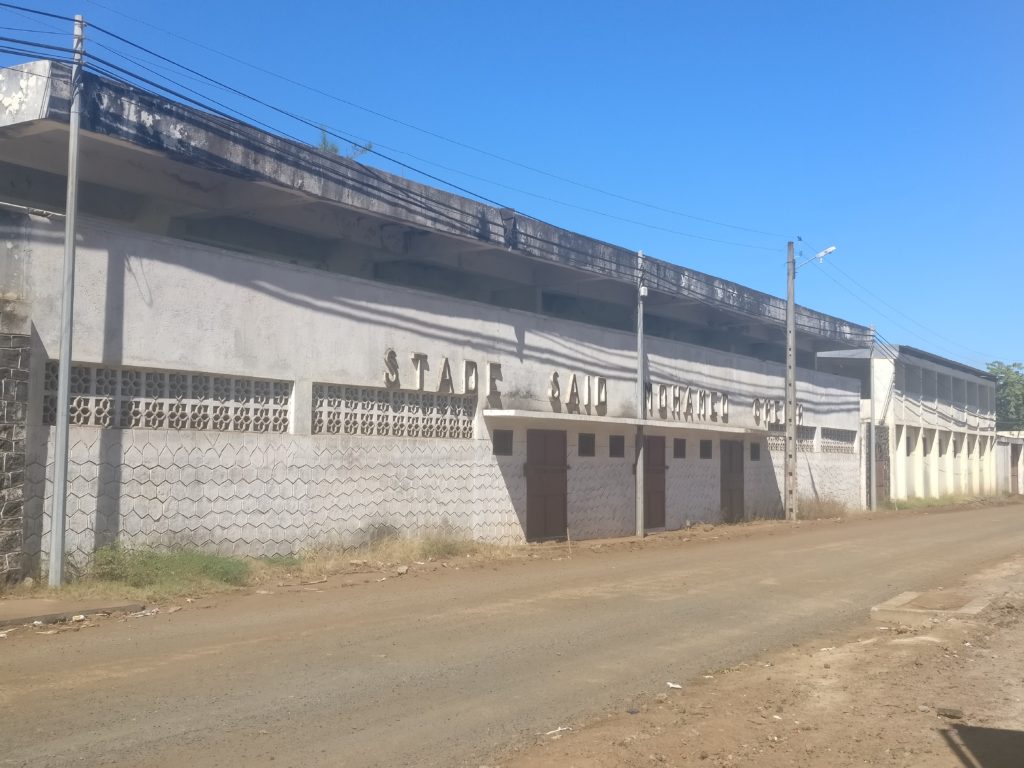
Prince Said Ibrahim Stadium. Football is the most popular past-time of the Comorians. This is their main stadium. 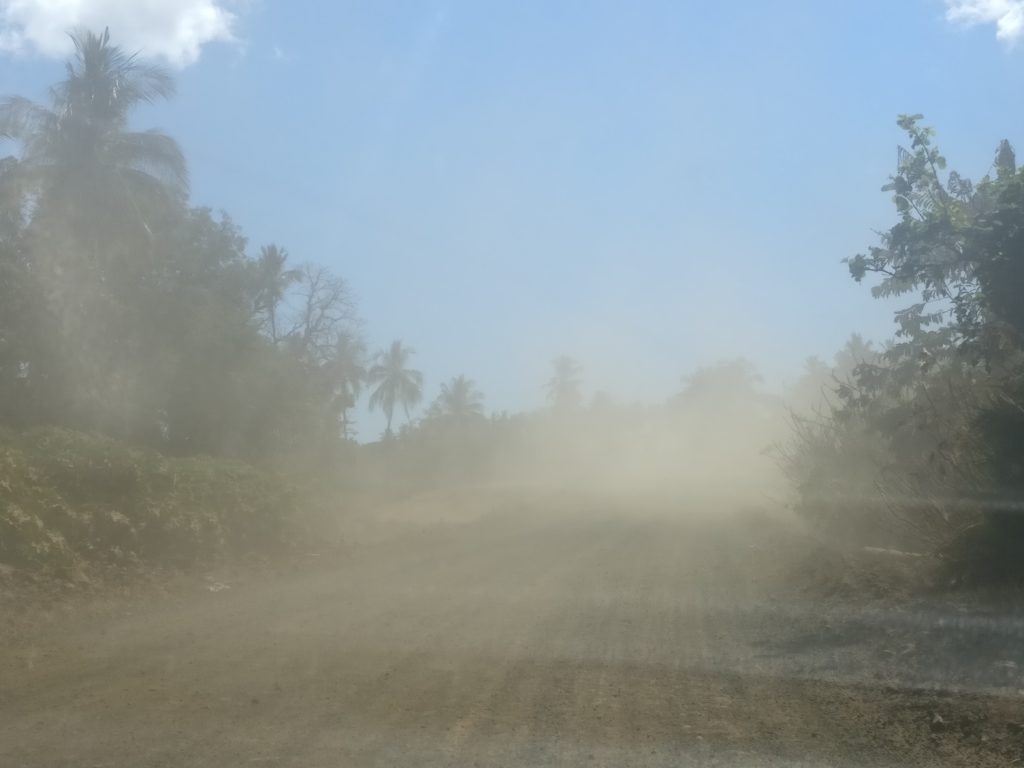
Absolutely dusty RN1. This is the main road that runs around the main island.
In my first post about Comoros, I used the title ‘The Perfumed Islands’ and left it without providing any information as to why it was called such. Comoros is one of the largest exporters of ylang-ylang oil, an essential oil for cosmetics, specifically for perfumes. Quite famously, Chanel’s No5 perfume used ylang-ylang from Comoros. While the price of a kilo of ylang-ylang oil is quite high, reaching up to about 100 Euros, the yield of oil per unit area seems to be very small that the industrial growth has been going down steadily. Apparently back in 2014, the export income from ylang-ylang was a mere 1.5 million Euros while the foreign currency remittances by Comorian expats were more.
One of the main things that you would observe in Comoros is that everything is extremely expensive. The hotel I stayed in was 80 EUR per day and had a small in-house restaurant. From what I heard from the friends I made during the Karthala trek, the other hotels were also similarly priced. However at 70-80 EUR per day, I usually expect a much better deal. For example in Bangkok, a very good hotel (from Movenpick or Avani chains) would cost you only 70-90 EUR. One of the beaches I visited Maloudja, seemed to be renting out very basic accommodation for as much as 30 EUR per night (bed only) while back in Sri Lanka, I would not pay more than 10 EUR for something like that.
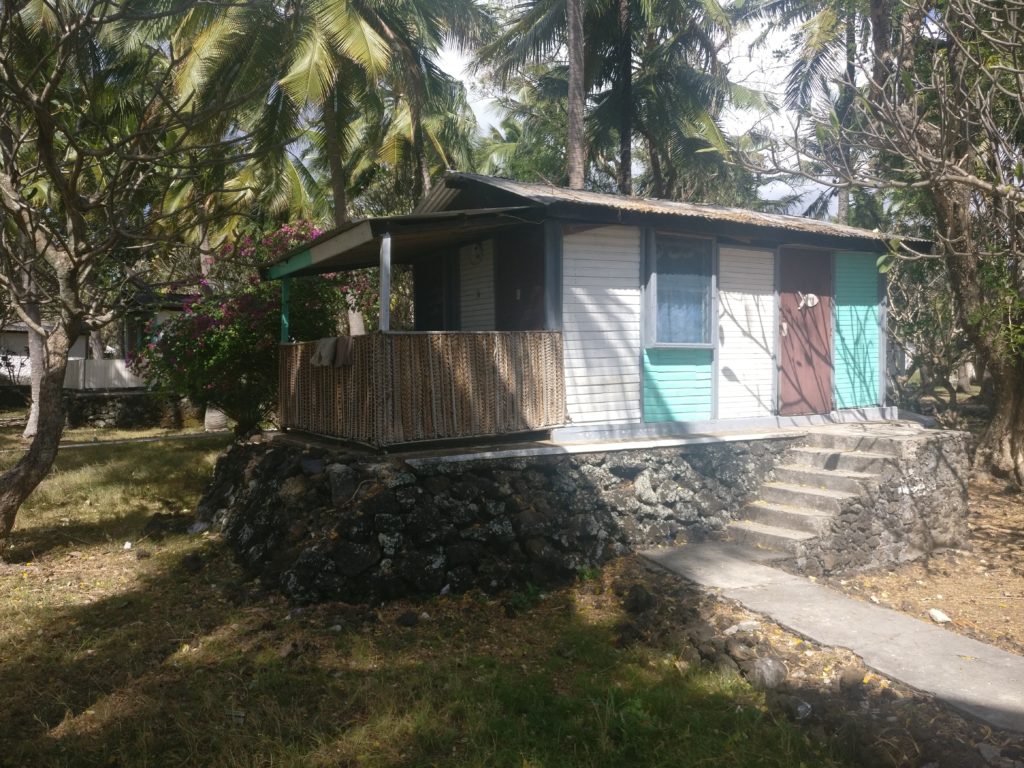
Once a large hotel complex, Hotel Maloudja Beach is now at a very poor state. This small shack would cost you 30 EUR per night. 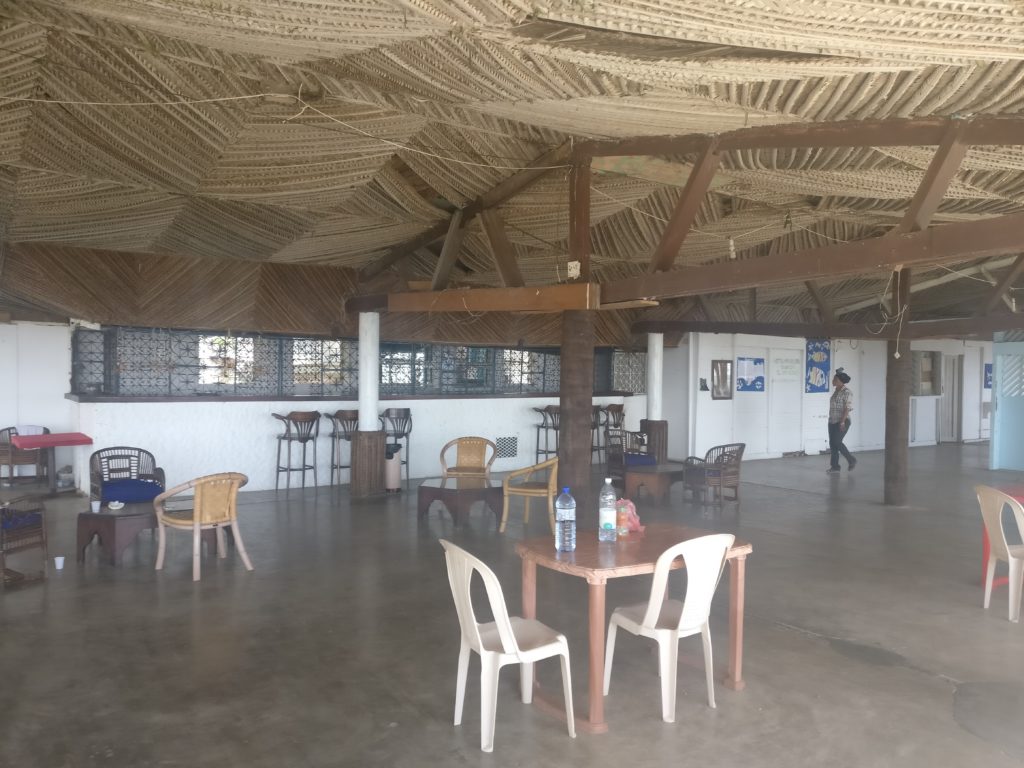
Restaurant at the hotel.
In my opinion, the high prices are a result of the massive net imports Comoros suffer from. Being a very small island nation, there aren’t much places for industry and agriculture. Pretty much every day-to-day item needs to be imported and incurs high shipping costs.
What I think of Comoros is that it has a good potential to become a tourist destination. The total tourist influx for the country however, seems to be only around 25,000-30,000 per year. Compare this to Mauritius, another Indian Ocean island nation of a population of about 1.3 million and had a tourist arrival number of 1.3 million. Or to Seychelles which has a population less than 100,000 and had a tourist arrival number of nearly 350,000. Unless Comoros builds up the numbers, they are not going to make it big. The main requirements for developing tourism however include political stability and massive infrastructure development. The country currently has a ring road around the main island but is in an extremely poor condition. There have been several attempts to set up large hotels as far as I could learn but all have failed due to proper long term planning. For the sake of the Comorians, I hope they achieve a stable political backdrop and would attract some good investments that could help them get out of the poverty they are in right now.